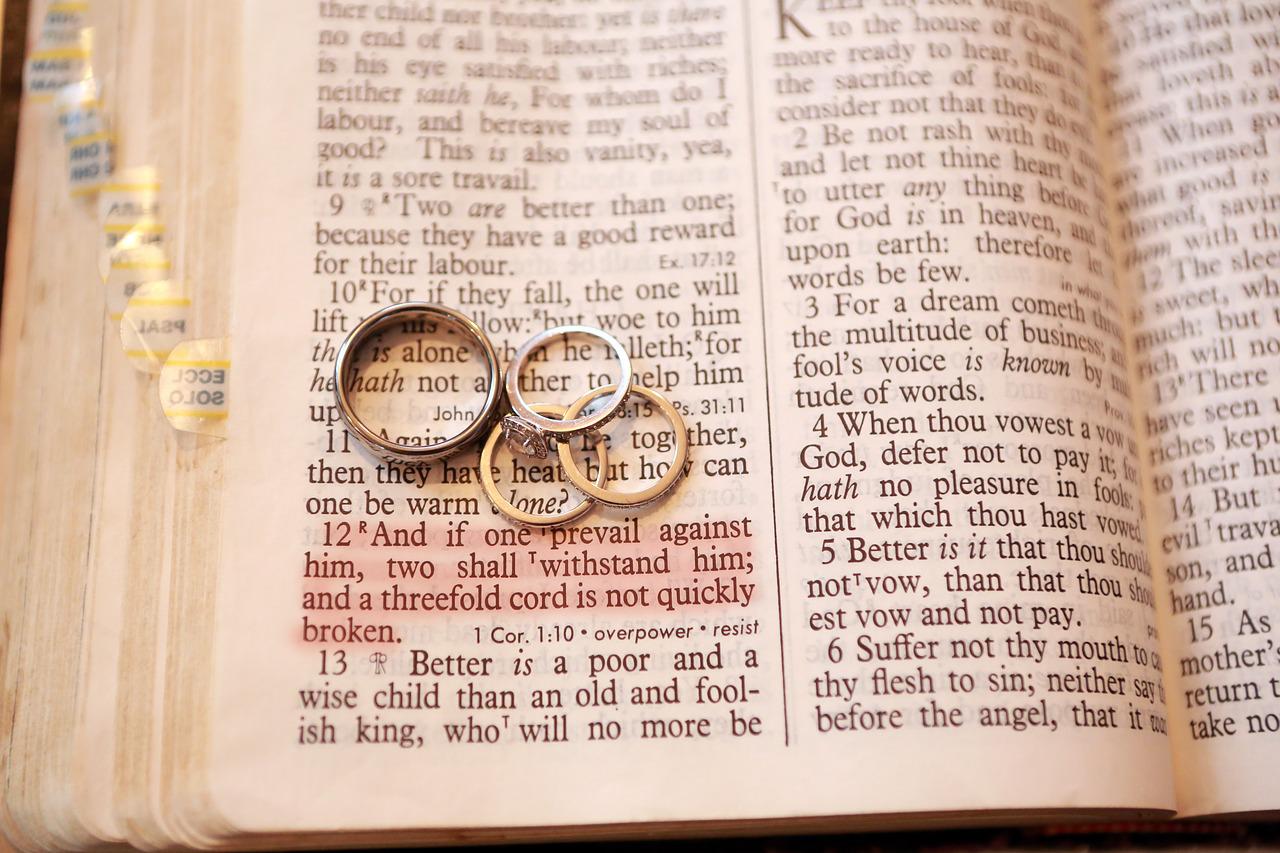I met my spouse through a college roommate in the spring semester of my sophomore year.
We got engaged in the spring of my junior year and married in August, just before my senior year.
During our pre-marital counseling, there were a couple of weeks that we both wondered if we should follow through with the wedding.
Thirty-some years later, we are still married.
Our process of getting married differs from how Isaac, in the book of Genesis, acquired a spouse.
Abraham said to his servant, the senior one in his household who was in charge of everything he had, “Put your hand under my thigh 3 so that I may make you solemnly promise by the LORD, the God of heaven and the God of the earth: You must not acquire a wife for my son from the daughters of the Canaanites, among whom I am living. 4 You must go instead to my country and to my relatives to find a wife for my son Isaac.” (NET Gen 24:2-4)
Arranged marriages were commonplace in Abraham and Isaac’s culture, unlike ours today.
Abraham first instructs his servant to put his hand under Abraham’s thigh.
We may also translate the word thigh in Hebrew as loin, meaning the seat of procreation or sexual organs.
This represents the oath to come is about the continuation of Abraham’s lineage.
This is no ordinary assignment, though.
Abraham describes it as a solemn promise by the Lord, the God of heaven and the God of the earth.
A solemn promise shows the swearing of an oath.
It explicitly prohibited the servant from selecting a wife for Isaac from the Canaanites where Abraham’s immediate family and servants are living.
Instead, Abraham instructs his senior servant to gain a wife for Isaac from Abraham’s relatives in the country God had instructed Abraham to leave. (See Gen 12:1).
- Why does Abraham insist Isaac’s wife not be a Canaanite?
The Lord repeatedly promised Abraham’s offspring would inherit the land that the Canaanites inhabited. (See Gen 12:6-7; 13:14-17; 15:5, 7, 18-21; 17:4, 8-9).
God also promised that Isaac would inherit the covenant promises from God. (See Gen 17:19).
Review what happened when Abraham followed Sarah’s suggestion for him to take her Egyptian maidservant as a wife. (See Gen 16:1-6; 21:9-14).
Abraham had also witnessed the destruction of Sodom and Gomorrah because of the seriousness of the resident’s sinfulness. These two cities were within the promised territory promised to Abraham’s descendants. (See Gen 18:20; 19:24-25, 27-29).
God had also tested Abraham to offer Isaac as a burnt offering. (See Gen 22:1-2).
The Lord intervened with a ram in place of Isaac for the burnt offering. (See Gen 22:10-13).
- Given all the experiences Abraham had with God’s directions, instructions, and promises, does it now make sense why Abraham insists Isaac’s wife not be a Canaanite?
God has set Abraham and his descendants apart from the existing people groups currently in the land of Canaan.
Abraham is older and wiser now than he was in Genesis 16 and 21. He recognizes Isaac should not marry someone from the people groups that will surrender the land of Canaan to Abraham’s and Isaac’s descendants.
- Why is Abraham making marriage arrangements for Isaac now?
After Abraham and Isaac had returned from the burnt offering test, Abraham receives word that his brother Nahor’s wife Milcah has had children. (See Gen 22:20-24).
Then Sarah, Abraham’s wife, and Isaac’s mother died. (See Gen 23:1-2).
The Lord has blessed Abraham. (See Gen 24:1)
With Sarah deceased and Abraham nearing the end of his life, it makes sense that Abraham would make plans to ensure that Isaac gains a wife to carry on the bloodline.
- How is this planning different from when Sarah gave Hagar the Egyptian maidservant to Abraham to gain offspring?
Read our verses for today again:
Abraham said to his servant, the senior one in his household who was in charge of everything he had, “Put your hand under my thigh 3 so that I may make you solemnly promise by the LORD, the God of heaven and the God of the earth: You must not acquire a wife for my son from the daughters of the Canaanites, among whom I am living. 4 You must go instead to my country and to my relatives to find a wife for my son Isaac.” (NET Gen 24:2-4)
Unlike when Sarah suggested Hagar as a surrogate breeder, Abraham is asking his servant to make an oath by the Lord in this planning instead of simply following a cultural tradition.
Further, Abraham is seeking to keep the future wife of Aramean heritage like his own and Sarah’s because he has repeatedly been told they will cast aside the Canaanites in the future because of their sin.
Reflection Questions
For those who are married, divorced, or widowed:
- Did you choose your spouse or did someone else select your spouse on your behalf?
- What counsel did you receive before getting married? Was it good counsel or faulty?
- Who has helped you the most in your marriage?
For those who are divorced or widowed:
- If you were to consider getting married again, whose counsel would you seek? Why?
For everyone:
- What does Genesis 24:2-4 teach you about marriage?
- Why is basing our planning for the future on God’s promises important for marriage?
- Is there anyone in your circle of friends or relatives that you are being called to counsel in their marriage decisions?
- What is the best advice you ever received about marriage?
- Who are your modern-day role models for a healthy marriage?
- How will you apply today’s study in the week to come?
- What other scripture and resources will you share in the comments of this post?
Blessings,
Barbara Lynn


Met my present husband by answering his ad in local paper, Met First one while babysitting for his wife who had some out of town quests with baby.
My Daddy said some heartfelt things about my first husband but I was blind with love and didn’t hear him… wish I had .
In many ways I can imagine arranged marriages could be very workable.. as wiser people can identify similar backgrounds which can be very helpful for a lasting relationship. My mother alerted me to that fact when I went north for High school into a predominantly Catholic NE part of country. Didn’t think too much about it at time , but now I can see how that might have been difficult if I had married a Catholic, Or another race for that matter. I remember my grandmothers black maid kindly explaining to me as a young girl “we keep to our own “ Made an impression on me as I later in life reflected on her words.
Thanks for sharing this Jane. Appreciate your thoughts.